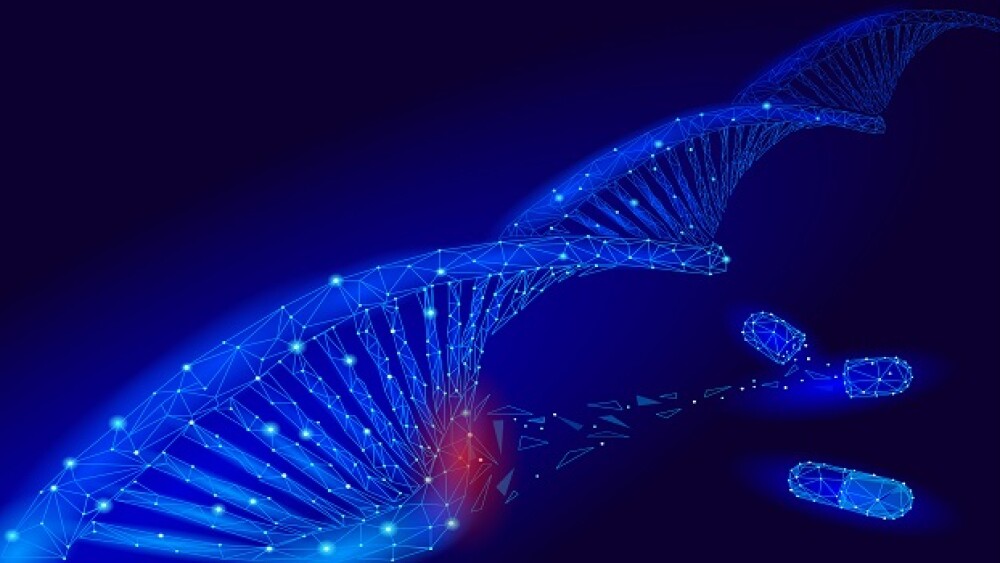The word transformative is not used lightly by Orchard Therapeutics Chief Executive Officer Mark Rothera. He has seen the lives of children born with rare autoimmune diseases changed dramatically through gene therapies developed by his company.
The word transformative is not used lightly by Orchard Therapeutics Chief Executive Officer Mark Rothera. He has seen the lives of children born with rare autoimmune diseases changed dramatically through gene therapies developed by his company.
Rothera took over the reins at Orchard in September 2017 from PTC Therapeutics, where he served as chief commercial officer. After spending more than two decades in the rare disease space, Rothera said he saw unique data at Orchard that showed the amazing impact gene therapy can have on the lives of children suffering from a rare disease.
“I had always hoped and dreamed that one day I could lead a company that could make a difference in rare disease. What drew me was that I had never seen this kind of data before,” Rothera told BioSpace in an exclusive interview.
Orchard is developing a suite of autologous ex-vivo lentiviral gene therapies to correct a disorder. Over the next few years, the company is eying potential regulatory approval for three different indications in Wiskott–Aldrich syndrome (WAS), adenosine deaminase severe combined immunodeficiency (ADA-SCID) and metachromatic leukodystrophy (MLD). The U.K.-based company is also hoping to begin clinical studies for a gene therapy targeting X-Linked Chronic Granulomatous Disease (X-CGD), a rare genetic immunodeficiency disorder where children are unable to fight bacterial and fungal infections.
At the American Society of Hematology meeting in San Diego, Donald B. Kohn, a member of Orchard’s Scientific Advisory Board, presented proof-of-concept data that showed the company’s experimental gene therapy OTL-102, which uses a self-inactivating lentiviral vector (G1XCGD), generated sustained levels of functioning neutrophils, which allowed the patients to fight infections on their own. According to the data presented at ASH, one year after treatment, six of the seven patients evaluated maintained 16 to 46 percent functioning neutrophils. The threshold target was 10 percent. That is the level needed to show potential clinical benefit and restoration of both biochemical function and immunity.
One of those patients dosed was a 14-year-old boy who spent much of his life inside London hospitals being treated with the standard of care, which include prophylactic antibiotics, antifungals and hematopoietic stem cell transplants, all of which have significant associated risks. The youth was terribly ill and there was a question as to whether or not he would survive, Rothera said. After he recovered from this bout, the teen was treated with OTL-102 as part of the early study. Two years later, Rothera said, the youngster is free of infection. He is now able to fight them on his own due to the gene therapy treatment and has not been hospitalized since. The youngster had missed a significant amount of school due to his rare disease, but now he is back and on the path of becoming a chef, Rothera said.
With the positive proof-of-concept data in hand, Orchard is planning on meeting with regulatory officials in the coming year to establish a clinical path forward for OTL-102.
Rothera said the data was exciting as a potential treatment for the disease that affects about 6,000 people in the world.
Kohn, a professor of pediatric hematology/oncology; microbiology, immunology and molecular genetics at the University of California Los Angeles, said OTL-102, an autologous hematopoietic stem cell gene therapy, has the potential to be a new treatment option for X-CGD patients.
With the OTL-102 data in hand, along with its other more advanced candidates, Orchard has positioned itself as a leading gene therapy company with a suite of treatments for rare diseases.
Since Rothera took over at Orchard, the company has made several moves to ensure it’s a global gene therapy leader. In April Orchard gained the rare disease gene therapy portfolio from GlaxoSmithKline that included Strimvelis, the first autologous ex vivo gene therapy for children with ADA-SCID. Then in August, the company secured $150 million in an oversubscribed Series C financing round that provided the company with the funds to advance its three late-stage gene therapy treatments. Then in November, the company closed a $225 million initial public offering.
When it comes to Orchard’s gene therapies, Rothera emphasize the word “transformative.” He said the company has extended data that shows the transformative power of its therapies over an eight-year period. He noted several patients treated as infants or toddlers with an Orchard therapy are now living happy lives as normal children.
As an example, he pointed to an Italian girl with MLD who was treated with OTL-200 at the age of two. Many MLD patients lose mobility and cognitive function at an early age and then die between the ages of five and 10. Eight years after being treated, the girl, who lost two older siblings to MLD, is now 10, can run, jump and play with other children and speaks three languages.
“The durability we are seeing is very encouraging,” he said. “This is what drew me to this company.”





